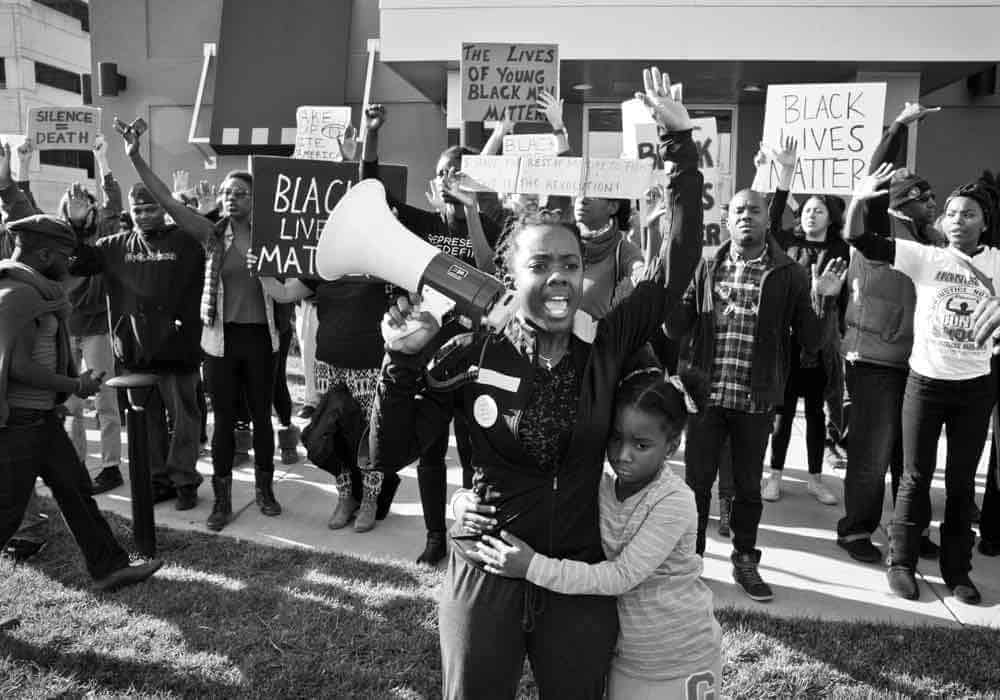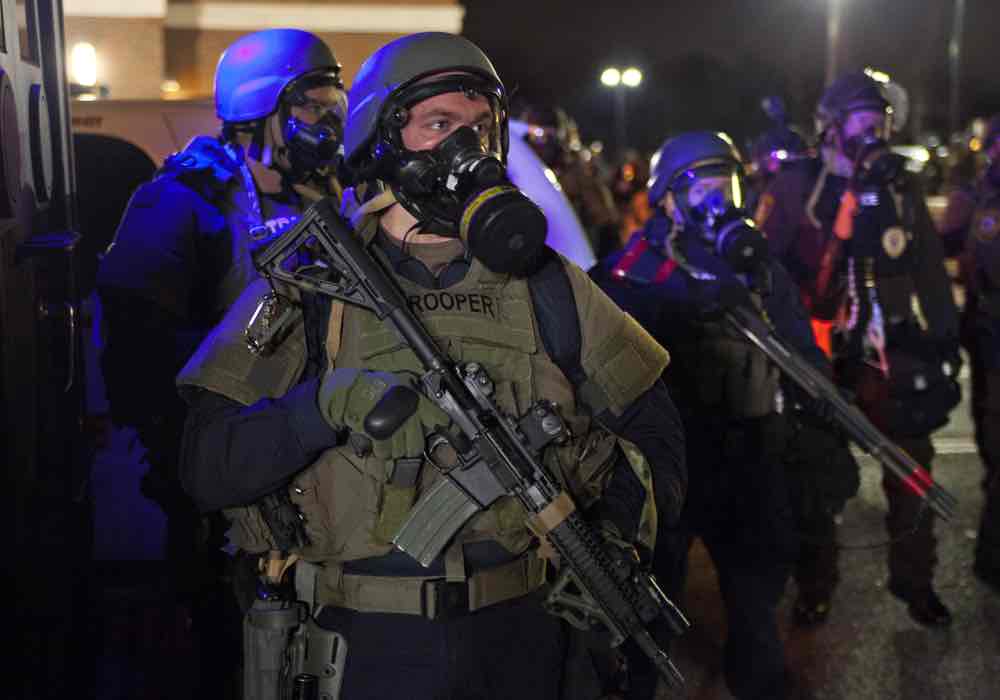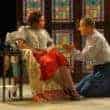Whose Streets? is a documentary about on-the-ground activism in the Ferguson uprising by filmmakers Sabaah Folayan and Damon Davis.

“We have to create a generation of activists. If there’s going to be any change, it starts with our children.”
Whose Streets?, a documentary about the Ferguson uprising, doesn’t linger on the extrajudicial murder of Michael Brown. Its focus is activism, on the protests and organizing that followed. The film is intimate and focused, telling the story of a community rising up in response to injustice. It’s not about specific individuals, giving us no one entry point with which to view the group. Nor is it a broad overview of all the players involved in Michael Brown’s murder; there are no interviews or attempts to humanize police here. Whose Streets? is a powerful portrait of a movement, a testament to the energy and labour of the group that takes to the streets in their demand for justice.
[clickToTweet tweet=”WHOSE STREETS focuses on activism, on the protests and organizing that followed.” quote=”WHOSE STREETS focuses on activism, on the protests and organizing that followed.”]
The film shines in moments when it shows the truth of what’s happening in the streets. Images of police lined up in riot gear, driving the streets with tanks that dwarf the people they’re apparently fighting, shooting rubber bullets and tear gas. They come across as faceless, wordless aggressors. A woman shouts at them that “this is not fucking Iraq!”, but what’s horrifying is how much it does look like a war zone. When we hear a FOX news commentator explaining that of course “the people smoking dope every night are part of the equation,” it couldn’t be in sharper contrast to the reality we’re shown: people grieving a murder in their community, being treated as if they were criminals.
[clickToTweet tweet=”WHOSE STREETS is intimate and focused, telling the story of a community rising up against injustice.” quote=”WHOSE STREETS is intimate and focused, telling the story of a community rising up against injustice.”]

[clickToTweet tweet=”‘Images of police lined up in riot gear….They come across as faceless, wordless aggressors.'” quote=”‘Images of police lined up in riot gear….They come across as faceless, wordless aggressors.'”]
With the film’s broad focus, it’s more the story of a people than of individual people. Often, individual players aren’t named. They’re quoted here or there, but none of their journeys work as a dramatic entry point. The main exception is Brittany (Brittany Ferrell), an activist who meets her wife at the protests — both are later arrested while shutting down a highway. But the quote at the top of this piece is from Copwatch David (David Whitt)’s wife. I can’t find her name. I had to look up all of the names in this piece that are in parenthesis. Naming people is an important way to honour and spread their work, so it’s strange that this film doesn’t, especially since many of these people are on the news and very publicly, visibly active. Beyond that, it can be hard to keep track of who’s who when we never get a strong idea of their characters and relationships.
Still, the film succeeds in showing the raw feelings of the protestors and the power of being on the ground and protesting. The chants — “We have nothing to lose but our chains!” — ring in our ears after seeing the film. One says, “We don’t do this because we hate the police; we do this because we love each other.” That love and sense of justice guides the group of activists just as it guides the documentary itself.
[clickToTweet tweet=”‘Love and a sense of justice guide the group of activists just as they guide the documentary itself.'” quote=”‘Love and a sense of justice guide the group of activists just as they guide the documentary itself.'”]
In the end, the documentary provides a definitive answer to its titular question. According to Kayla (Kayla Reed), as she speaks to a crowd on the anniversary of the non-indictment of Darren Wilson:“The reality is these are our streets. They were built on the backs of our ancestors, so we are going to claim them as long as we want to. We will stand in the streets until we are equal citizens. Period.”
[clickToTweet tweet=”WHOSE STREETS? is about mobilizing in the streets to stop more brutality and injustice. ” quote=”WHOSE STREETS? is about mobilizing in the streets to stop more brutality and injustice.”]
This story is happening now in the streets of America. It didn’t end with Michael Brown — and that’s why this is an important film. It’s about being heard in the quest for justice: the film quotes Martin Luther King Jr., who said, “the riot is the language of the unheard.” Whose Streets? is about mobilizing in the streets to stop more brutality and injustice. This is part of American history now, and these people are writing the next chapters.

